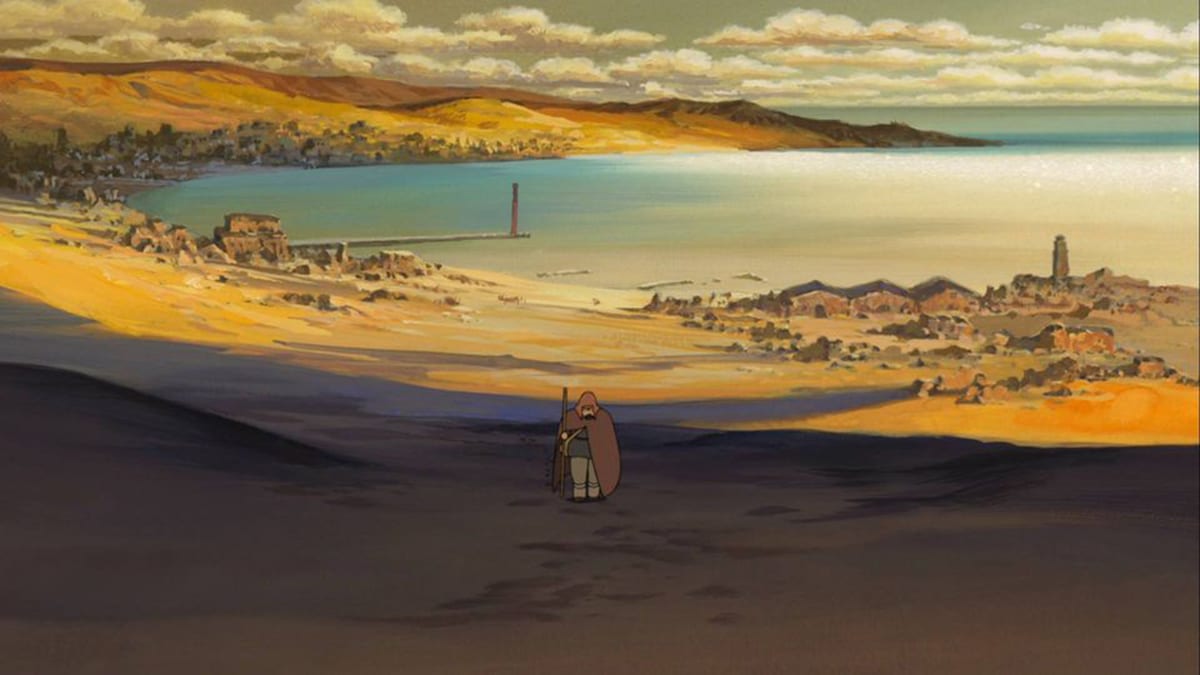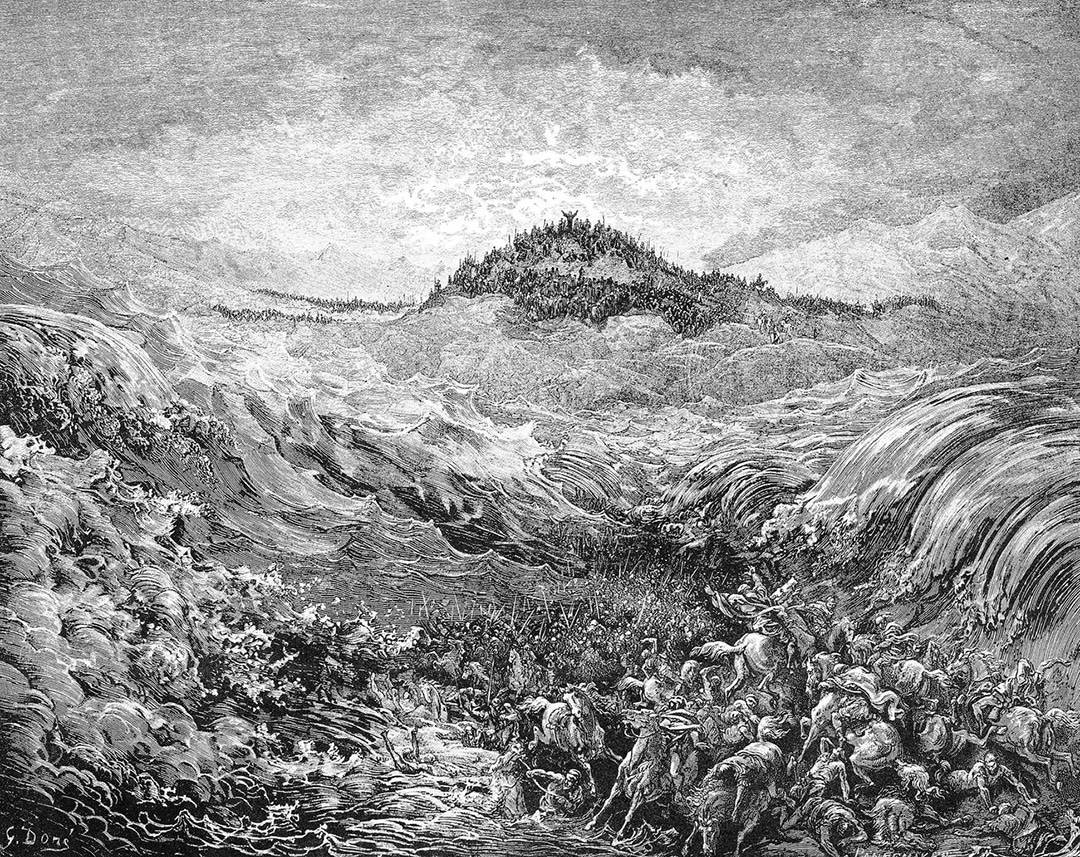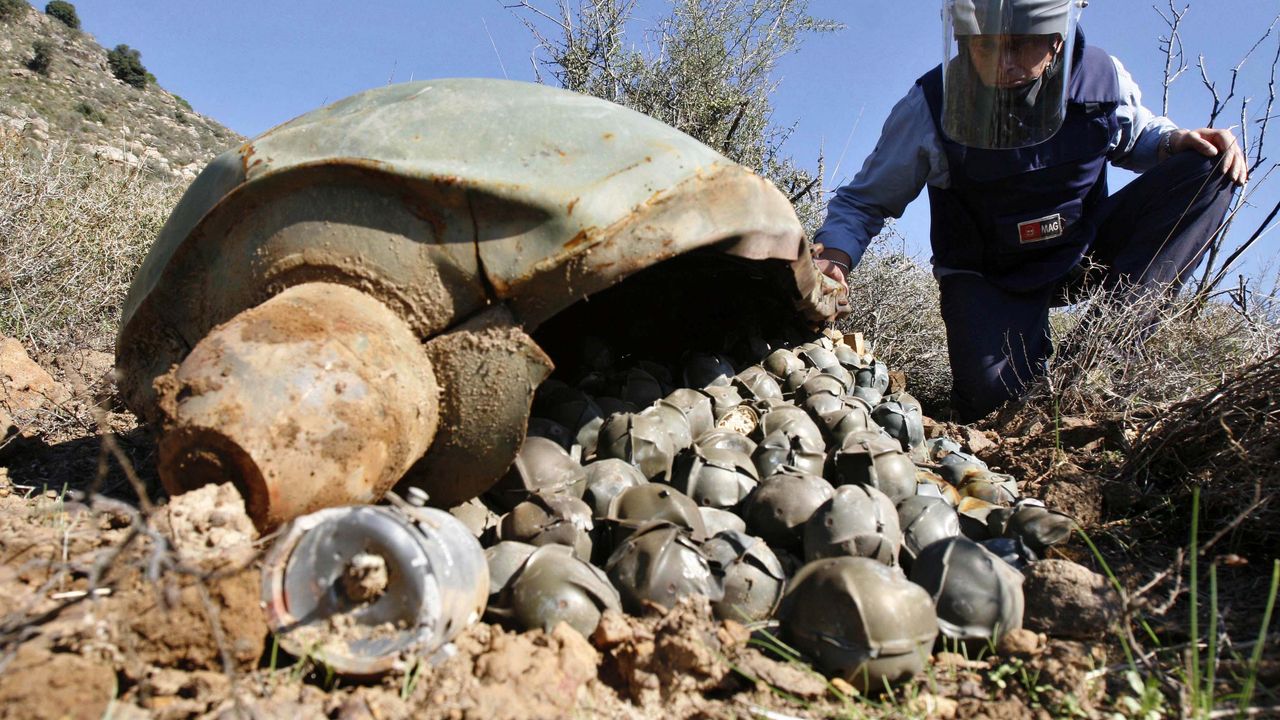

The Farthest Shore
Through the hole, all the world’s joy, vitality, and wizardry is draining away. Le Guin’s haunting description of the leak as it afflicts one city, Hort Town, eerily foretells what our own society has become.
There was indeed something wrong about Hort Town, wrong in the very air, so that one might think seriously that it lay under a curse. And yet this was not the presence of any quality, but rather an absence, a weakening of all qualities, like a sickness that soon infected the spirit of any visitor… The squares and streets bustled with activity and business, but there was neither order nor prosperity…. The people, for all their restless activity, seemed purposeless. Craftsmen seemed to lack the will to work well. Even the robbers robbed because it was all the knew how to do.
Le Guin wrote these words in 1972, when America was still to all appearances a vital nation. Nonetheless she recognized the early signs of a deep cultural malady and foresaw where it would lead. Not only does she diagnose the cause, she also prescribes a cure, a path toward the recovery of our aliveness.
In the book, the cause of the problem was an evil wizard named Cob, who sought to defeat death and be immortal. In fact, Le Guin never actually refers to him as evil. Yet my use of that term is deliberate, because Cob’s motivation is as well the ultimate source of what we call evil: the ambition to overcome death once and for all, and the delusion that this is possible. Because what is that ambition really? It is to preserve the separate self for all time. It is the epitome of selfishness. Evil does not begin with malice. Malice is not elemental to evil. Malice is a consequence of evil.
The main character of the book is a youth named Arren, who accompanies the wizard Ged in his journey to shut the hole in the world. Ged asks Arren to describe the people of Hort Town. Arren says, “They seemed uncaring. They were like sick men, like a man who had been told he must die within a year, and tells himself it is not true and he will live forever. They go about without looking at the world.”
What do you and I become, when we are told we must die within a year, or ten, or fifty, and act as if it were not true? Can we hold life precious, imagining it will never be lost? Can we hold the people around us as precious, imagining they will always be with us? Have you ever had that moment, upon a loved one’s passing, of wishing you had but one more moment with them, a moment in the full realization of their preciousness. “If only I had understood how precious she was!”
That understanding can be called many things: wisdom, love, devotion… but I will call it sanity. To be sane is to see and accept what is real. Ten years ago my teenage son Jimi asked me, with an air of muted consternation and dismay, about an experience he called “de-realization.” It was a feeling that life is a charade, that the world and its relationships are simulacra, cardboard cutouts of some other, lost, reality. As Le Guin describes it, “Under the surface, things did not seem entirely real.”
He knew in his heart that reality was empty, without life or warmth or color or sound. Without meaning. There were no heights or depths. All this lovely play of form and light and color on the sea and in the eyes of men was no more than that, a playing of illusions on the shallow void. They passed, and there remained the shapelessness and the cold, nothing else.
Jimi’s question made me sad, but I took solace in the fact that at least he was disturbed by what most people take for granted as the normal feeling of existence.
On a social and political level, de-realization accompanies the treatment of all beings, human and otherwise, as if they too were not precious. It is not only individuals, but society as a whole that suffers from de-realization. As if the consequences were not real, we hold entire populations in misery, we flirt with nuclear war, and we destroy the ecological basis of civilization.
What is the cause of de-realization? The substitution of digital for analog and virtual for physical over the last two generations is surely part of it, but its roots go much deeper. The protests of J.D. Salinger and the Beats over the phoniness of modern life long predate the Information Age, as do “spiritual” teachings like “You are not your body,” and “The world is but an illusion.” Both deny life and repudiate the gift of incarnation. (A truer teaching would be, “You are not only this body.” Truer still would be, “In this moment, you very much are this body.”) Anti-worldly teachings grapple with de-realization but are not its prime cause.
To illuminate the issue further, let’s turn again to Le Guin. Ged speaks to Arren of what has gone wrong in the world: an “upsetting of the balance.” Arren asks the cause of it. Ged says, “An unmeasured desire for life.”
“For life? But it isn’t wrong to want to live.”
“No. but when we crave power over life, endless wealth, unassailable safety, immortality, then desire becomes greed. And if knowledge allies itself to that greed, then comes evil. Then the balance of the world is destroyed, and ruin weighs heavy on the scale.”
Power over life. Endless wealth. Unassailable safety. What a good description of the priorities of America over my lifetime, with its full spectrum dominance and homeland security, its explosion of (financial) wealth, lockdowns, total information awareness, the incursion of “liability” into every corner of public life, and the removal of all the fun playground equipment. The roping off with police tape of all the playgrounds during the pandemic was nothing new, really, just the logical extension of a long trend.
A ruined wizard explains the price to be paid to conquer death. “What can you buy life with, but life?” His condition is both pitiable and contemptible. He is maimed, filthy, and ragged; his magic is gone; he is addicted to a horrible escapist drug. He demonstrates what we see in our own society, that the quest for power over death achieves only its ironic opposite: the degeneration of life.
As I said in my previous essay,
Safety first shrinks the horizons of possibility. What starts as caution becomes comfort, then habit, then a prison. The prisoner carries the key in his back pocket, taking comfort in his pretend helplessness. I’m not lecturing you, I’m speaking from personal experience. One feels less and less alive. What is there to live for, confined to the fortress, looking wistfully out the windows at a lush but distant landscape?
The Earthsea series offers perhaps the most compelling and metaphysically satisfying account of magic of any fantasy novel, although it does bear some affinity for Tolkein’s conception of magic being a function of voice, song, and word. For Le Guin, magic (a word she rarely uses, favoring rather wizardry or magery) is about the true names of things. As the magic drains away through the hole in the world, wizards forget the names, chanters forget the songs, artisans forget the crafts, life loses its luster, and everyone goes through the motions of existence. Here too is a parallel to our own society. I just read that China is about to launch its first hyperloop, a mag-lev train between Hangzhou and Shanghai that travels at 1000km/h. Such a project seems impossible for America today. What is wizardry in the real world? It is to make something happen outside of an existing, inertial course. It is to bring something new to the world. It is technology. It is the exercise of our creative powers to alter reality. And, while technology in the West is certainly still progressing, it seems somehow impotent to accomplish anything really worthwhile, certainly anything on the scale of the problems that afflict us. Our magic isn’t working anymore.
Such powers, of course, can be used for good or for ill. Ged speaks of the need for restraint, lest the wanton use of wizardry upset the balance. Call the mage wind here, and all winds everywhere are altered. Each act has consequences. Le Guin has Ged say:
All that the beasts and the green things do, is well done, and rightly done. All of these act within the equilibrium. From the hurricane and the great whales’ sounding, to the fall of a dry leaf and the gnat’s flight, all they do is done within the balance of the whole. But we, insofar as we have power over the world and over one another, we must learn to do what the leaf and the whale and the wind do of their own nature. We must learn to keep the balance. Having intelligence, we must not act in ignorance. Having choice, we must not act without responsibility.
Here she is speaking, of course, of the responsible use of real-world human wizardry, the powers of science and technology. I might disagree with her about the balance; rather I would say that the responsibility is to the continued coming alive of creation, the continued unfolding of life and beauty in the cosmos. There is balance in that, but also change, a continual becoming. Yet we have often used technology not to further life, but to control it, to simplify it, to subjugate it, to exploit it, to extract it. Ged says to the fallen wizard Cob:
You sold the green earth and the sun and stars to save yourself, but you have no self. All that you sold, that is your self. You have given everything for nothing. So now you seek to draw the world to you, all that life and light you lost, to fill up your nothingness. But it cannot be filled. Not all the songs of earth, not all the stars of heaven, could fill your emptiness.

All that you sold, that is your self. The forest where the quarry went, that was our self. The flocks of swans, that was our self. The whales so numerous the horizon was obscured by their mist, that was our self. The vanished sea anemones in the tidal pools, that was our self. To be is to relate. Existence is relationship. When we destroy our relations, of course we are empty. Our kin live and die inside of us. That’s obvious when a loved one dies; one can feel that emptiness. What fills it eventually is more relationships, other loves, more dependency. If one holds back from ever loving again, the hole remains open and life drains out through it. Le Guin writes, “There is no safety, and there is no end. The word must be heard in silence. There must be darkness to see the starts. The dance is always danced above the hollow place, above the terrible abyss.”
Life is a terrifying risk. Love is a most terrifying risk. There is no stopping the ultimate catastrophe: loss. Ged says, “Death is a terrible thing, and must be feared…. And life also is a terrible thing, and must be feared and praised.” But the alternative to taking the terrifying risks of life and love is worse: to hold oneself apart and never plunge all the way into relationship; that is, never plunge all the way into life, and thus, never to fully exist. As Ged tells Cob, “You lost death. You lost life. In order to save your self, your immortal self.”
That is the final irony. The self we strive to preserve is already immortal. Yet it is also mortal; in fact it dies every minute. It is never the same. Consciousness hurtles through infinity, each moment unique. Le Guin writes, “That selfhood which is our torment and our treasure and our humanity does not endure. It changes, it is gone, a wave on the sea. Would you have the sea grow still and the tides cease, to save one wave, to save yourself? Would you give up the craft of your hands and the passion of your heart, and the light of sunrise and sunset, to buy safety for yourself, safety forever?”
I hope this essay has not landed as just “spiritual.” Actually, it is political. The obsession with safety and security, the agendas of domination, the mentality of control, the attempt to hold the world in stasis, the mania for preserving youth, the capture of the world in categories and property, the exchange of embodied sensuousity for data—all carry profound social and ecological impact. They are the door through which joy, passion, creativity, life, and meaning leak out of the world. Shut the door, I tell myself, shut the door. Turning my back then to the hypnotic delusion of escape, I look out into my yard. There is my child, deep in his imagination, a song on his lips, frolicking in the grass. And I am full.





0 Comments